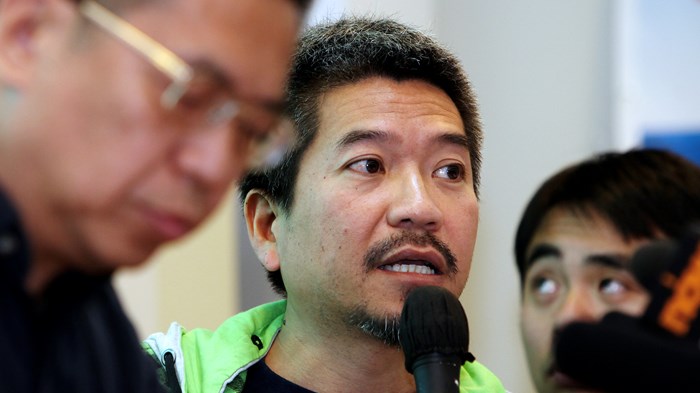
A Christian organization working to rehabilitate drug addicts in Hong Kong said in a statement that it was “shocked” when authorities arrested four of its directors Jan. 18 for conspiracy to defraud donors of $6.4 million ($50 million HKD) in donations.
Three other directors—including the group’s founder, Jacob Hay-sing Lam, and the principal of the group’s high school, Alman Siu-cheuk Chan—have also been charged, but fled the country after the investigation began. Christian Zheng Sheng Association vowed to cooperate with the police investigation to “restore the institution’s reputation and innocence.”
Founded in 1985, Zheng Sheng seeks to build a “holistic and interactive Christian therapeutic community” for drug addicts of all ages and help them “re-establish their values in life.” They also opened Christian Zheng Sheng College, a high school that functions as a rehab center, according to its website. The Chinese characters of Zheng Sheng represent the biblical phrases “repent and redeem” and “from death unto life.”
Concerns about the group arose over a fundraiser that the school’s principal Chan ran between October and December 2020. Chan claimed the school needed funds in a year of record-low donations during the COVID-19 pandemic. The school ended up raising $5.7 million through the campaign.
However, police investigations found that less than 10 percent of the donations raised at the end of 2020 actually went to the school. Instead, there were more than 300 transactions to other bank accounts, including three personal accounts co-owned by Chan and other charity directors. The investigation also found that the charity transferred more than $6.4 million in donations to its branches in the United Kingdom and the United States.
Amid the fraud case, the group has maintained its innocence. Chui Hong-sheung, a supervisor of the school, told local media that it was a “misunderstanding.” He said the school had borrowed $5 million from its parent association, yet did not explain why some of the money was sent to personal accounts.
“Zheng Sheng has always had a clear stance over the years,” the charity said in a statement provided to CT. “Our purpose is to serve young people through principles of good governance. Our finances strictly adhere to charity law, we are audited by independent accountants whose reports are published to the public for scrutiny.”
Lam founded Zheng Sheng in 1985, setting up a farm in Hong Kong’s New Territories where male drug addicts could rehabilitate. In the ’90s, the group opened two more centers for young men and women on Lantau Island. Then, in 1998, the school opened for young drug offenders to complete their secondary education. Students also develop other skills such as playing instruments, operating audio-visual equipment, running ultramarathons, competing in archery competitions, writing Chinese calligraphy, and studying the Bible.
“We have so many young people involved in drugs in Hong Kong,” Chan told Reuters in 2009. “They have to be educated ... schooling gives them a chance at life, empowering them, reconnecting them with society. Schooling creates a new status, they are students, not inmates.”
A former longtime coworker of Lau Chun-wah, one of the directors who was arrested, said the charity was well-known among the Hong Kong Christian community. Non-Christians are also aware of Zheng Sheng’s work because the courts would often send young offenders to the charity’s rehab instead of to jail. The coworker, who asked not to be named due to the sensitivity of the topic, said she found Lau, who is currently the principal of United Christian College, to be someone who really cares for his students.
“He is a really devoted Christian in education,” the former coworker said. “He is a person who likes to try new things or create new activities or opportunities for students … so, actually, when I heard the news that he was arrested by the police, I was very upset.”
She added: “In my personal opinion, I don’t believe he would cheat others of money.” As for Chan, “I have listened to his sharing and I think he is a devoted Christian in education,” she said. “He really wants to change [the students].”
Chan, who is now based in the UK, posted a link on his Facebook page to encourage people to donate to the school just days before news broke about the scandal.
Meanwhile, another one of the arrested directors, Lee Wing-hung, said he had repeatedly reminded founder Lam to make the charity’s finances public and to stop transferring money to private bank accounts. Lee said the three directors who had fled should return to Hong Kong.
When questioned about the fraud case, however, Lam, who is now in the US, replied with a vague statement to DimSum Daily: “Throughout history, adversity has always been a part of life, but one’s unwavering commitment echoes through the annals of time.”
Denise Tsang, a news editor at South China Morning Post, wrote in an opinion piece that she and her husband were one of the many Christians in Hong Kong who supported the college, as Chan claimed that almost all the students who went through the college were able to get clean and return to society.
Yet on visiting the school, she was surprised to see the poor facilities and meager meals, even as donations poured in. She noted that some students were encouraged to stay on campus after their court-ordered period ended so that the school could continue to receive tuition. Today the school has 17 students.
“One immediate impact of the scandal is that donors are likely to be wary when giving money, especially to causes not traditionally ‘popular’ such as for tackling drug addiction, as opposed to helping orphans, for example,” Tsang wrote.

Support Our Work
Subscribe to CT for less than $4.25/month


















